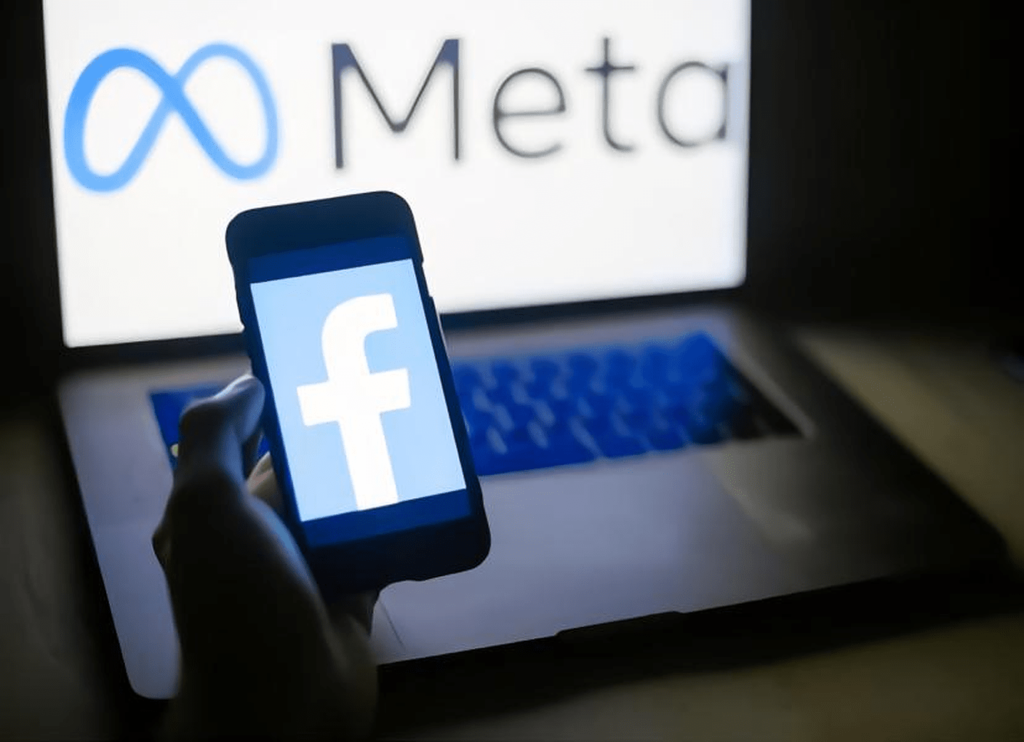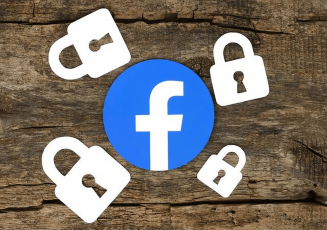Facebook has been in the news lately for a peculiar reason – the decision to change its name. However, what seemed even more unusual is the newly announced name for Facebook – ‘Meta’ (that certainly reminisces all the ‘data’ disasters).
Since then, every internet user has remained stunned, confused, amused, or wondering what made it happen, why it happened, and what’s next. Indeed, given the popularity of Facebook as a brand for years, it seemed awkward to suddenly change the name.
Amidst all the chaos and speculations about the future of your data, we thought to help you find the answers to all your queries in one place. So, read along to know all about the tech giant’s journey from ‘TheFacebook’ to ‘Facebook’ to ‘Meta’ and beyond.
Facebook rebrands as ‘Meta’ – That’s the news
About a week ago, Facebook announced to change the name of its parent firm ‘Facebook Inc.’ Earlier, ‘Facebook’ was not only a social media platform but was also the primary holding firm behind the products Facebook, Messenger, WhatsApp, Instagram, Oculus, and others.
Though it wasn’t previously a problem, the back-to-back issues with the ‘Facebook’ platform damaged the firm’s reputation. (We’ll talk about it in detail later.)
Also, Mark Zuckerberg, Facebook’s co-founder and CEO of (former) Facebook Inc., envisioned a different and broader future. In particular, he referred to the “metaverse” as the firm’s future. And for that, he deemed ‘Facebook’ to be limiting as the brand name.
Hence, Zuckerberg hinted at an identity change for the parent company while leaving all the products’ names unchanged.
This idea quickly gained traction, leaving people speculating about what would come next.
Finally, on October 28, 2021, at the annual Connect conference, Zuckerberg unveiled the new identity as ‘Meta Platforms Inc.’ or, in short, ‘Meta.’
Elaborating on this in the Founder’s Letter, 2021, Zuckerberg stated,
To reflect who we are and the future we hope to build, I’m proud to share that our company is now Meta.
Our mission remains the same — it’s still about bringing people together. Our apps and their brands aren’t changing either. We’re still the company that designs technology around people.
But all of our products, including our apps, now share a new vision: to help bring the metaverse to life. And now we have a name that reflects the breadth of what we do.
Regarding the selection of the new identity, he wrote,
I used to study Classics, and the word “meta” comes from the Greek word meaning “beyond”. For me, it symbolizes that there is always more to build, and there is always a next chapter to the story.
This careful rebranding hasn’t arrived haphazardly. Instead, the firm ensured reflecting the change everywhere on the internet together with the formal announcement. Consequently, everything, from Facebook’s official Twitter account to the Wikipedia page, replaced ‘Facebook’ as the company name to ‘Meta.’
(Interestingly, there’s another Twitter account named ‘Facebook’ that is currently private. We aren’t sure what it holds for us.)
On top of everything, the firm also has an official online existence as “meta.com,” which currently redirects to “https://about.facebook.com/meta.”
But what is ‘Metaverse’? Let’s understand
Although ‘metaverse’ isn’t a new word, it became the buzzword soon after Facebook’s name change. Also, how Zuckerberg demonstrated the concept in his Keynote lecture (videos available on meta.com) bewildered many. In brief, it was all about building a realm that blends virtual reality (VR) and augmented reality (AR).
So what exactly is metaverse, we hear you ask.
Precisely, the term gained traction back in the 1990s as the future of communications. Many sci-fi shows and movies illustrated the metaverse as cyberspace, where interaction with each other becomes possible without requiring physical presence.
Some popular media names revolving around this topic include the novel Snow Crash (1992), a VR-based social app Second Life (2003), and the online game platform Roblox (2006).
The topic remained in the limelight throughout the years, eventually attracting attention until today. Consequently, we have also seen Decentraland – a decentralized 3D VR platform powered by Ethereum blockchain, and Microsoft Mesh – a mixed reality software from Microsoft, emerge lately.
So basically, the metaverse is the blend of AR, VR, and the internet to build a digital realm breaking the boundaries of the physical world. In the metaverse, people would meet each other, communicate, do work, study, or even wander in parks, right from the comfort of their homes.
For example, in the post-COVID 19 situations, the world faced problems going online because of the lack of physical interaction. Students faced trouble understanding online lectures, people suffered issues while conducting online meetings, and even the whole work-from-home concept ruined both ‘home’ and ‘work’ lives.
With metaverse, such limitations would theoretically be no more as you could meet someone just as you do today. But it won’t be a physical interaction, but rather a digital one via ‘hologram.’
The future is now (???) – What (Facebook) Meta believes

Even after all the hype for a few decades, metaverse still remains a concept of a ‘future’ that is yet to arrive. Perhaps, it might be because of all the practical limitations with technology that hinder turning this dream into reality.
Of course, going digital isn’t so easy. The world still hasn’t got stable worldwide internet connectivity. We are still juggling between 3G, 4G, 5G, and 6G on a global scale. Likewise, it’s taking time to bring the appropriate equipment and technology into the mainstream for a universal adaptation.
Nevertheless, Facebook seems in a rush to realize this dream now. It first hinted about such plans when it acquired Oculus back in 2014 for a little over $2 billion. Admittedly, it was one of the costliest acquisitions back then. But Facebook had its plans, for which it was a timely investment.
Fast forward to 2021, Facebook has now stepped ahead to bring Oculus into the limelight. Undoubtedly, Facebook mainly became famous for its ‘Facebook’ platform, so it was the need of time to shift the focus with a rebranding.
Going ‘Meta’ opens up new opportunities for Facebook to bring Oculus into the mainstream. The company can now boldly proceed in its intended direction (the metaverse) without getting typically engaged with its (now conventional) social apps.
Describing the scope of ‘Meta,’ the company states,
Meta builds technologies that help people connect, find communities, and grow businesses. When Facebook launched in 2004, it changed the way people connect. Apps like Messenger, Instagram, and WhatsApp further empowered billions around the world.
The statement continued,
Now, Meta is moving beyond 2D screens toward immersive experiences like augmented and virtual reality to help build the next evolution in social technology. So, the metaverse may not be anything near for many. However, Zuckerberg believes the ‘future is now.’
Things that kept Facebook in hot water
After reading about Meta and the metaverse it will focus on, you might wonder what would happen with your data.
And you won’t be wrong since Facebook isn’t so reputable when it comes to users’ data privacy. From poor data management to shady data-sharing and monetization, Facebook has been found involved in numerous malpractices.
Even recently, right before the rebranding announcement, ‘Facebook Papers’ surfaced online, accusing the firm of hate speech. According to The Washington Post, the revelations from the whistleblower Frances Haugen – a former Facebook employee, and some internal documents exposed how the firm potentially ‘exacerbated’ sensitive issues.
You may also like to read: Best VPNs to unblock Facebook anywhere
‘TheFacebook’ to ‘Facebook’ – In retrospect
The ‘Facebook Papers’ isn’t the first Facebook crisis. Instead, the firm kept making into the news for various privacy concerns.
After the primitive ‘TheFacebook’ appeared online, Zuckerberg faced allegations of stealing the idea. However, he boldly denied them.
Then, in 2005, ‘TheFacebook’ evolved into a single-worded brand name ‘Facebook’ that continued that way until recently.
With Facebook.com, the firm gained tremendous popularity for the ease of online communication with privacy. (During those early years, Facebook users could even hide their profiles from appearing in Facebook search results, let alone Google.)
Nonetheless, the launch of ‘NewsFeed’ in 2006 drew negative attention as many users considered it an invasion of privacy.
But things started going weird when, in 2007, Facebook had to formally apologize for the privacy-intrusive advertising practice. Though the firm later allowed the users to opt-out, it hinted at how things would go.
Eventually, the biggest scandal surfaced online in 2014 as the infamous ‘Cambridge Analytica data scandal.’
Since then, Facebook has had to apologize (it won’t be wrong to say, ‘now and then’) for a data, privacy, or security breach. Indeed, all these incidents severely damaged the brand’s reputation.
However, the recent changes to WhatsApp’s privacy policy caused a further blow to Facebook’s credibility. Yet, most of the privacy issues were linked back (either directly or indirectly) to a single Facebook product – Facebook.com.
So, it simply meant that a single product damaged the credibility of the entire company. As a result, it made perfect sense to limit Facebook’s problems to ‘Facebook’ only.
That’s why and how ‘Meta Platforms Inc.’ came into existence. (Though this is something no one will ever officially admit, the media can sense.)
Possible privacy situation in Meta’s Metaverse
Facebook, or Meta, doesn’t hold a credible stance due to various data privacy issues. So, what’s troubling for the existing (and future) Meta users is how the company aims to protect their privacy.
Of course, Mark Zuckerberg is aware of how his new idea would raise concerns when analyzed against the company’s past. So, he came well-prepared about it during the Keynote lecture.
One of the initial sentences he said in the lecture was,
Privacy and safety need to be built into the metaverse from day one.
As elaborated further, users will have control over their metaverse environment regarding how and who joins them. They would also decide when they want to be teleported to personal space and spend some time alone.
But of course, that’s not what people are concerned about. Instead, it’s the way the company deals with users’ data.
So, addressing this aspect, Zuckerberg mentioned the first point for the future to be ‘transparency,’
Never Surprise People.
That is, there should be transparency about what data people would share on the metaverse and how their data would be collected and used. There shouldn’t be sudden revelations about the data exploitation by app(s).
But this is something ideal – not necessarily practical.
According to the idea of metaverse that Zuckerberg has just shared, people would present themselves in the digital world in their actual forms in the long run. The ‘avatars’ that people would create would represent their true identities to the level of their skin tone, expressions, eye movements, and pores.
On the other hand, people would allow direct access to others in their homes. Some third parties would monitor the objects, designs, structures, and even human bodies in the physical world.
Today, when the world merely has an internet confined to devices, we see extensive data collection, exfiltration, and abuse – not only by cyber criminals but also by the service providers and their partners.
So, what remains questionable is that when the digital world might almost invade our physical existence, how will the providers, especially Facebook, manage security in the future?
For now, Facebook officials have hinted about securing ‘Avatars’ by identity verifications strategies and restricting them to certain accounts. But of course, we know this is not viable.
Even today, despite the availability of extreme security measures like multi-factor authentication and hardware security keys, we see frequent data breaches. Unfortunately, no effort has ever proved 100% working against such threats.
And when we narrow down the scope of such breaches, Facebook never comes clean.
Therefore, the question remains, “should we trust Meta to manage the metaverse for us?“
According to Dr. Marcus Carter from the Socio-Tech Futures Lab (STuF Lab), University of Sydney,
Facebook’s VR push is about data, not gaming. Metaverse technologies like VR and AR are perhaps the most data-extractive digital sensors we’re likely to invite into our homes in the next decade.
Likewise, according to Dr. Ben Egliston from the Queensland University of Technology,
Facebook likes to frame questions about VR and AR surveillance in terms of individual privacy. But Facebook’s previous failings, such as in the Cambridge Analytica scandal, are actually in the (un)ethical use of data and their asymmetric platform power.
Dr. Carter doubts that the “privacy theatres” that companies relate to their innovations never compel them to listen to others’ advice. Instead, the ultimate decision eventually comes from the company management regardless of consumers’ wants.
Indeed, Facebook has exhibited a particularly shady attitude in this regard already. Despite making repeated claims about protecting users’ data, they were eventually slapped with a 500,000 fine by the UK ICO for their failure.
However, it doesn’t mean that Meta will continue with this legacy. We might hope and expect things to get better at the company level.
But what is essential today for you, as a privacy-savvy user, is not to get excited about Meta. Instead, it’s better to wait and see how things go forward before you decide to jump into the metaverse, that too, via Meta.
‘Facebook’ or ‘Meta’ – Which one sounds better?
For now, no one can predict with confidence what the future holds for our online data. We can only hope for the firm to stick to its privacy commitments in practice.
Ideally, Meta should not be concerned with users’ data anymore if it genuinely wants to detach Facebook’s questionable past. For this, Zuckerberg and all Meta officials should consider revising their policies and sharing them transparently with the public to gain trust.
While that’s all something beyond users’ control, what remains with them is their freedom of expression. It became evident when netizens took to Twitter after hearing the new name.
While some people appreciated it, it was amusing or even disappointing for many.
Here’s what people have generally expressed after learning of ‘Meta.’
So basically it’s Ethereum vs. Facebook in a race to create a compelling Metaverse.
Open vs. Closed.
Transparent vs. Opaque.
Permissionless vs. Permissioned.
Community Owned vs. Zuck Owned.My bets are placed. Let’s build a better future together.
— Brendan from Dharma (@brendan_dharma) October 28, 2021
Sorry Mark, I’m with Joey. 😁#meta pic.twitter.com/jXEKNKo0fX
— April (@ronnie_184) October 30, 2021
#meta #Facebook
Fixing issue ❌
Changing Name ✅ pic.twitter.com/unw8Lct0Wl— Chris (@chriissss1_) October 30, 2021
Idk why but Facebook’s new name reminds me of HTML <meta> tag😂#100DaysOfCode
— Data King🇺🇬 (@Tonytonie256) October 30, 2021
Some even feel Facebook ruined the true concept of the ‘metaverse‘ thing originally coined by blockchain.
So what’s your take on Facebook’s rebranding? Does ‘Meta’ sound better than ‘Facebook’? Do share your thoughts with us.






